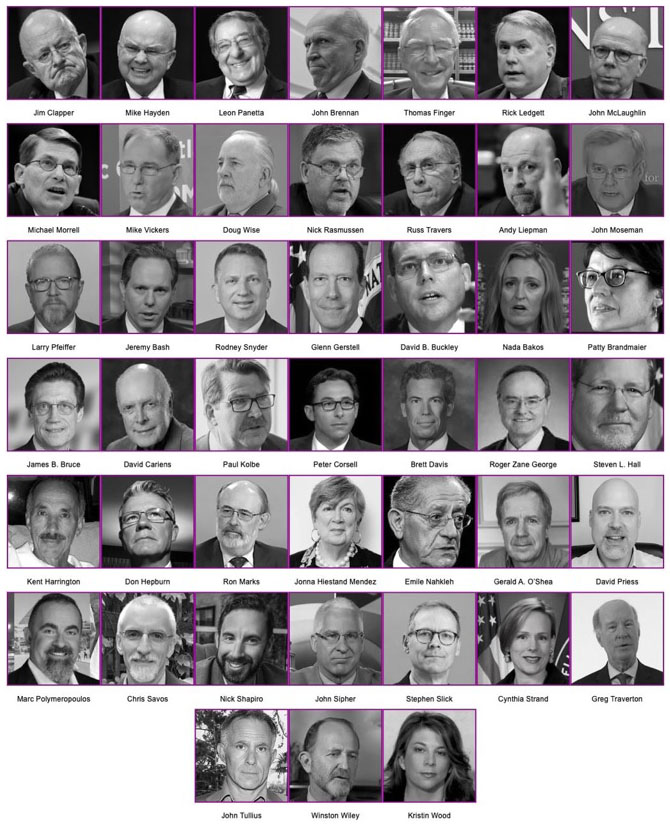Analysis by WorldTribune Staff, March 20, 2022
An Oct. 19, 2020 letter signed by 51 former U.S. intelligence chiefs and other officials dismissed the Hunter Biden laptop story as “Russian disinformation,” giving the leftist corporate media and Big Tech mega moguls the rationale needed to bury and suppress the story.
However, snowballing evidence has confirmed the legitimacy of the laptop and its contents. Most recently, The New York Times confirmed that the Hunter Biden emails were exactly what they appeared to be, as first reported by the New York Post in October 2020.
Still, faced with the mounting evidence, the former intel officials are refusing to apologize for lying about the laptop and its contents that, if reported honestly, would have been devastating to Joe Biden’s 2020 campaign.

The 5th paragraph of the letter states: “We want to emphasize that we do not know if the emails, provided to the New York Post by President Trump’s personal attorney Rudy Giuliani, are genuine or not and that we do not have evidence of Russian involvement — just that our experience makes us deeply suspicious that the Russian government played a significant role in this case.”
Three paragraphs later the statement says:
For the Russians at this point, with Trump down in the polls, there is incentive for Moscow to pull out the stops to do anything possible to help Trump win and/or to weaken Biden should he win. A “laptop op” fits the bill, as the publication of the emails are clearly designed to discredit Biden.
(The letter by the 51 former intel officials can be viewed here.)
The New York Post’s Miranda Devine, who broke the Hunter Biden laptop story in October 2020, asked on March 18: “Do the officials who tried to flip the 2020 election feel any regret for their actions?”
When the New York Post reached out to the officials who signed the letter, most would not answer the question. A few doubled down. “No remorse. No shame. And no apologies,” the New York Post reported.
CNN pundit Jim Clapper, former director of national intelligence, was among those contacted by the New York Post who stood by the initial assessment: “Yes, I stand by the statement made AT THE TIME, and would call attention to its 5th paragraph. I think sounding such a cautionary note AT THE TIME was appropriate,” Clapper said in a statement to the New York Post.
Russ Travers, former National Counterterrorism Center acting director, responded: “The letter explicitly stated that we didn’t know if the emails were genuine, but that we were concerned about Russian disinformation efforts. I spent 25 years as a Soviet/Russian analyst. Given the context of what the Russians were doing at the time (and continue to do — Ukraine being just the latest example), I considered the cautionary warning to be prudent.”
Don Hepburn, former national security executive, answered: “My position has not changed any. I believe the Russians made a huge effort to alter the course of the election . . . The Russians are masters of blending truth and fiction and making something feel incredibly real when it’s not. Nothing I have seen really changes my opinion. I can’t tell you what part is real and what part is fake, but the thesis still stands for me, that it was a media influence hit job.”
Spies who lie: The @nypost contacted the senior ex-intelligence officials who signed the shameful 2020 letter declaring Hunter Biden’s laptop and its emails we ran were Russian disinformation. Not one apologized. Most refused to comment. A few like James Clapper doubled down pic.twitter.com/EVYBXun02K
— Miranda Devine (@mirandadevine) March 19, 2022
About . . . . Intelligence . . . . Membership
